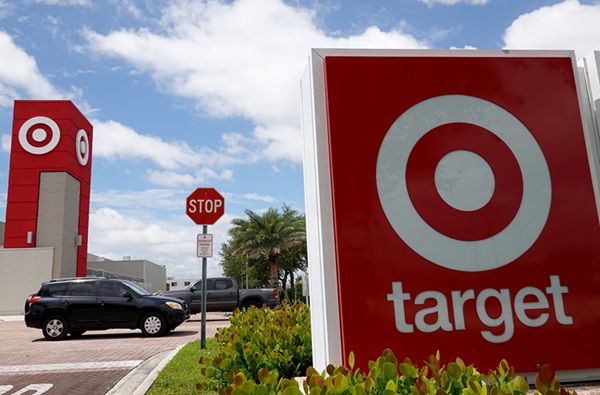In a surprising turn of events, Target managed to surpass Wall Street’s sales expectations and exceeded earnings estimates for the third quarter, sending its shares soaring more than 10% in premarket trading. The retail giant’s success is attributed to robust purchases in high-frequency categories like food and beauty, which compensated for weaker customer spending in the current economic climate.
Despite facing challenges similar to those encountered over the past year, such as a decline in comparable sales for the second consecutive quarter and heightened consumer demand for lower prices, Target’s CEO, Brian Cornell, revealed the company’s strategy during a call with reporters. He noted that customers were deferring purchases, waiting for opportune moments, such as temperature drops, to buy items like jeans or sweatshirts.
Chief Financial Officer Michael Fiddelke expressed the company’s commitment to reversing the negative sales trend. However, both Fiddelke and Target’s leadership team cautioned that a return to positive territory might not happen this year, even with the holiday shopping season in full swing.
Target’s earnings per share exceeded expectations at $2.10, surpassing the anticipated $1.48, while its revenue of $25.4 billion outperformed the expected $25.24 billion.
Despite a broader slowdown in the retail industry due to elevated prices, Target, with its emphasis on clothing, home goods, and impulse purchases, faced additional challenges. These included blowback for its Pride month merchandise collection, increased organized retail crime, and the closure of nine stores in major cities due to theft and threats of violence.
The company’s stock had suffered a 26% decline this year, reflecting a drop in value by more than half since the highs of the Covid pandemic. Target’s total revenue for the fiscal third quarter fell from $26.52 billion in the year-ago period, with comparable sales dropping nearly 5% year over year. Digital sales also declined by 6% compared to the previous year.
Despite these challenges, Target showed progress in rebuilding its profits. Net income for the fiscal third quarter jumped about 36% to $971 million from $712 million, or $1.54 per share, a year earlier. This improvement was attributed to better inventory and expense management rather than increased sales.
As Target heads into the critical holiday quarter, it expects comparable sales to decline in a mid-single-digit range, with adjusted earnings per share projected between $1.90 and $2.60. The company aims to boost sales during this season by leveraging new and exclusive merchandise, including thousands of gifts priced under $25.
While Target faces headwinds in the retail landscape, its ability to adapt and strategically manage inventory and expenses has positioned it to navigate the challenges and strive for continued success in the months ahead.
(Source: CNBC | Minneapolis/St. Paul Business Journal)









